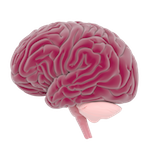Bio-markers and Mental Health
- Erin Vermilye

- Mar 26, 2019
- 2 min read
Updated: Apr 13, 2019
The Canadian Bio-marker Integration Network in Depression (CAN-BIND) is an Ontario based research program for improving the lives of those suffering with depression.

CAN-BIND research program is currently working on many ways to help improve care and treatments for those with depression. Established in 2011, the program works to find ways of identifying bio-markers to different types of treatment for depression.
" Our mission is to deliver fast and effective care to all Canadians living with depression. Through collaboration, research innovation and systems-oriented thinking, we seek to discover treatment strategies guided by each individual’s comprehensive history and pathway to depression." ~CAN-BIND mission.
Recent studies from CAN-BIND look into the idea of using bio-markers to personalize treatment for those with depression. According to PROOF Centre of Excellence, "Biomarkers are distinct biological indicators (cellular, biochemical or molecular) of a process, event or condition that can be measured reliably in tissues, cells or fluids, and can be used to detect early changes in a patient’s health." Some examples include body temperature as a bio-marker to fever and blood cholesterol as a bio-marker to risk of coronary hear disease. Bio-markers are effective and reliable ways to make decisions regarding treatment. For example, if the body's temperature is too high, that indicates a fever, indicating that the patient may need a fever reducer such as acetaminophen.
CAN-BIND is searching for bio-markers for depression. Just as temperature = fever = acetaminophen, if the right bio-markers were found and understood it could mean a that patients can take a lot of guess work out of medication trials with a medication that will more likely work based on the bio-markers present.
So far the search for depression bio-markers have been inconclusive. However, the team at CAN-BIND is taking it a step further by studying brain imaging. Research of brain imaging of those with mental illness have shown a common trend of certain areas of the brain having more or less activity in certain brain regions.The prefrontal cortex is a common area to be effected by mental illness. It is also an area that has been seen to make positive developments with Cognitive Behavioral Therapy.
Unfortunately, these treatments are not ready for clinical trials. replication, peer-review, and many more studies are needed before bio-markers become a reliable way to treat depression. However, through the continued work of CAN-BIND and its team, we may soon have a new and better way to treat depression and a variety or mental illness.
Citations:
Fonseka, Trehani M., et al. “Neuroimaging Biomarkers as Predictors of Treatment Outcome in Major Depressive Disorder.” Journal of Affective Disorders, vol. 233, June 2018, pp. 21–35. ScienceDirect, doi:10.1016/j.jad.2017.10.049. Maciukiewicz, Malgorzata, et al. “GWAS-Based Machine Learning Approach to Predict Duloxetine Response in Major Depressive Disorder.” Journal of Psychiatric Research, vol. 99, Apr. 2018, pp. 62–68. ScienceDirect, doi:10.1016/j.jpsychires.2017.12.009. Puntmann, V. O. “How-to Guide on Biomarkers: Biomarker Definitions, Validation and Applications with Examples from Cardiovascular Disease.” Postgraduate Medical Journal, vol. 85, no. 1008, Oct. 2009, pp. 538–45. pmj.bmj.com, doi:10.1136/pgmj.2008.073759. Strimbu, Kyle, and Jorge A. Tavel. “What Are Biomarkers?” Current Opinion in HIV and AIDS, vol. 5, no. 6, Nov. 2010, pp. 463–66. PubMed Central, doi:10.1097/COH.0b013e32833ed177. What Are Biomarkers? | PROOF Centre. http://www.proofcentre.ca/resources/biomarker-solutions/what-are-biomarkers/. Accessed 9 Apr. 2019. “Why and How We Study Depression.” CAN-BIND - Improving Depression Care Together, https://www.canbind.ca/research/why-and-how-we-study-depression/. Accessed 9 Apr. 2019.




Comments